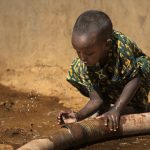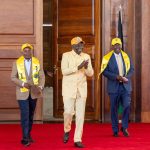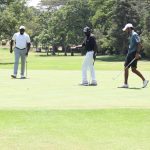
A South African whistleblower who alleged high-level graft said Friday he was “in danger” after fleeing the country and following publication of a report into alleged state corruption under ex-president Jacob Zuma.
Athol Williams testified before a commission of enquiry and called into question the role of 39 people or companies in establishing direct links with the then-president. Following his testimony he asked in vain to be afforded state protection and left the country.
“If anything my danger increased now. I’m in danger and I don’t know where it will come from,” Williams said during an online press conference from an undisclosed location.
“There’s a conscious effort to leave me and other whistleblowers exposed,” he said, adding someone had warned him there was a “coordinated effort” to silence him.
Williams was speaking after lead investigator, Judge Raymond Zondo, handed the first part of his anti-graft commission’s probe into alleged corruption under Zuma to the current president, Cyril Ramaphosa. The commission compiled more than 800 pages of findings after an almost four-year investigation.
The full report is due for release by the end of February and Ramaphosa has until the end of June to announce what action, if any, is to be taken against those implicated.
Williams, a former business strategy advisor, was hired as a consultant at financial firm Bain, which the South African government hired between 2015 and 2016 to restructure its tax collector.
An original six-week contract worth 2.6 million rand ($270,000, 150,000 euros) mushroomed more than sixty-fold over two years and went beyond the tax body into other sectors, prompting allegations the bloated deal covered illegal deals under the Zuma administration.
Last August saw another whistleblower, former regional health authority finance officer Babita Deokaran, 53 and a key witness in an inquiry into allegations of a corrupt Covid-19 procurement, shot dead in front of her Johannesburg home.
Zuma, 79 and facing multiple graft allegations, was handed a 15-month jail term for refusing to testify before the investigative commission but was granted release on medical grounds last September.






